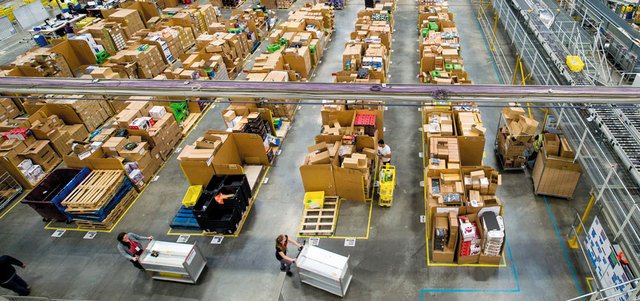The importance of logistics

Importance of logistics: Logistics services are of great importance in the global economy, as they contribute to improving the efficiency and quality of production, distribution and consumption processes. It also helps in creating job opportunities, developing skills, increasing competitiveness, and achieving regional and international integration. These are some points that illustrate the importance of logistics services: Improving cost efficiency: Logistics helps reduce a company's overhead costs by optimizing inventory storage, improving transportation and distribution operations, and improving overall supply chain management. By improving cost efficiency, companies can achieve financial savings and increase their profitability. Improving customer experience: Logistics contributes to improving customer experience by ensuring that products are available at the right time and in the specified place. When customer needs are met quickly and effectively, it leads to customer satisfaction and long-term customer relationships. Improving type and quality: Logistics helps in ensuring the quality of products and goods by properly managing inventory and providing proper storage conditions. In addition, transportation and distribution processes are controlled to ensure the safety of the products and avoid damage or loss. Improve response time: Logistics helps reduce response time to customer orders and deliver products quickly. Thanks to organized operations and good planning, companies can handle customer orders effectively and provide a short delivery time. Enhancing competitiveness: Logistics services are one of the main factors that contribute to enhancing competitiveness in the business market. By improving the efficiency of operations and better meeting customer needs, companies can achieve a competitive advantage and increase their market share How logistics companies work: Logistics companies implement and manage logistics operations and services in supply chains. With a comprehensive understanding of supply chains as well as customer requirements to provide efficient and reliable services, here is an overview of how logistics companies operate: Analysis and planning: Logistics companies begin by analyzing the needs and requirements of customers and supply chain requirements. It provides consulting and planning services to determine preference and design appropriate logistical operations based on client needs and market requirements. Inventory Management: Inventory management involves planning and monitoring inventory levels for materials and products. Order history is analyzed and future orders are forecast to determine required inventory quantities, inventory replenishment schedules, and make recommendations for improving inventory management. Implementing packaging and packing operations: Packaging operations are important and responsible operations that require high skills in organization, coordination and accuracy. This job includes preparing, arranging, labeling and packaging goods sent to or from customers or partners. It also includes monitoring the quality and safety of goods and ensuring their compliance with the required specifications and standards. All of this requires employees who are able to work under pressure, adapt to different situations, and cooperate with multiple work teams. This job provides stable and rewarding employment opportunities for people who love challenge and innovation. Transportation and distribution management: It is the management of goods transportation operations from their source to their final destination in an efficient, safe and reliable manner. Transportation and distribution management includes determining the best means of transportation and coordinating shipping schedules, temporary storage, and final distribution of products. Shipments are tracked and tracking information is provided to customers to maintain a clear view of the movement of products. Contract and partnership management: Logistics company operations include negotiating contracts with partners and suppliers and signing agreements to provide logistics services. Relationships with partners are managed to ensure cooperation and achievement of common goals. Technology and Automation: Logistics companies use technology and information systems to improve efficiency and accuracy in logistics operations. Supply chain management software and tracking and control systems are used to achieve a comprehensive view of operations and enhance communication and collaboration between stakeholders. Monitoring and analyzing performance: Logistics companies track the performance of operations and analyze logistics data to identify areas that can be improved and developed. Key performance indicators (KPIs) are used to measure efficiency and quality and provide reports on a logistics company's performance. Use of information technology and analytics: Logistics companies use information technology to enhance supply chain management. Supply chain management systems and analytics software are used to track and analyze data related to logistics operations. This helps in making informed strategic decisions, improving efficiency and reducing costs. How can logistics companies develop their performance and way of working: To develop the performance and functions of logistics companies, several strategies and practices can be followed. Here are some tips that can help logistics companies improve their performance: Improving supply chain management: Logistics companies should focus on improving overall supply chain management. Planning and coordination should be improved between all elements involved in the supply chain, including suppliers, manufacturers, freight forwarders and warehouses. This can be achieved by adopting integrated supply chain management systems and using technologies such as enterprise resource planning (ERP) and logistics analytics. Use of modern technology: Modern technology can play a crucial role in improving the performance of logistics companies. Warehouse management systems (WMS), shipment tracking and positioning systems (GPS), robotics, artificial intelligence, and data analytics can be used to enhance the efficiency of a company's operations and improve planning, demand forecasting, and shipment tracking. Staff training and development: Logistics companies must invest in staff training and development. Proper training should be provided to employees
Newsletter
Subscribe now and stay up to date with the latest news
